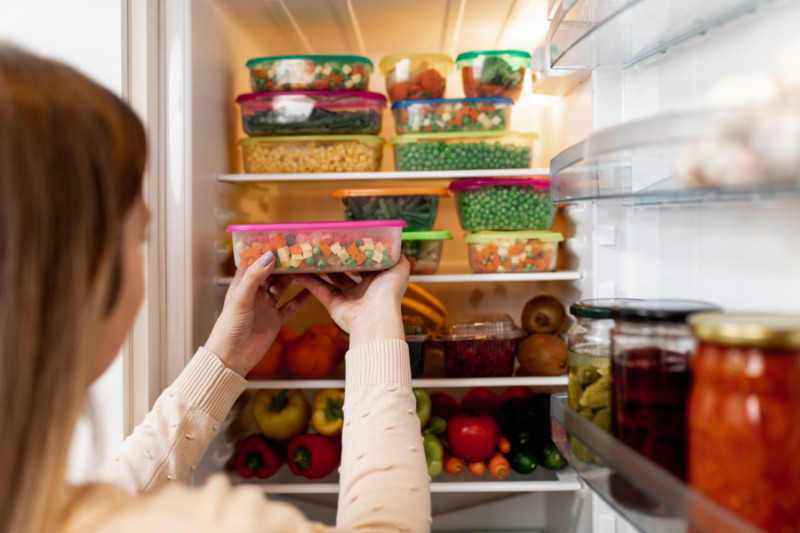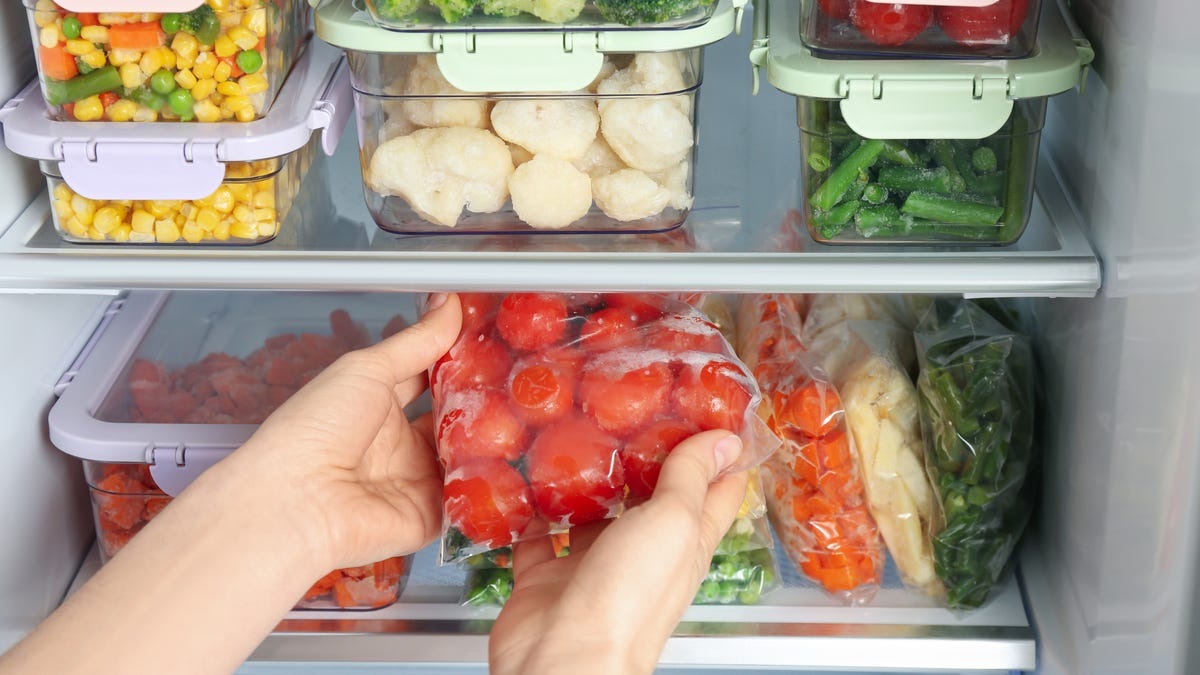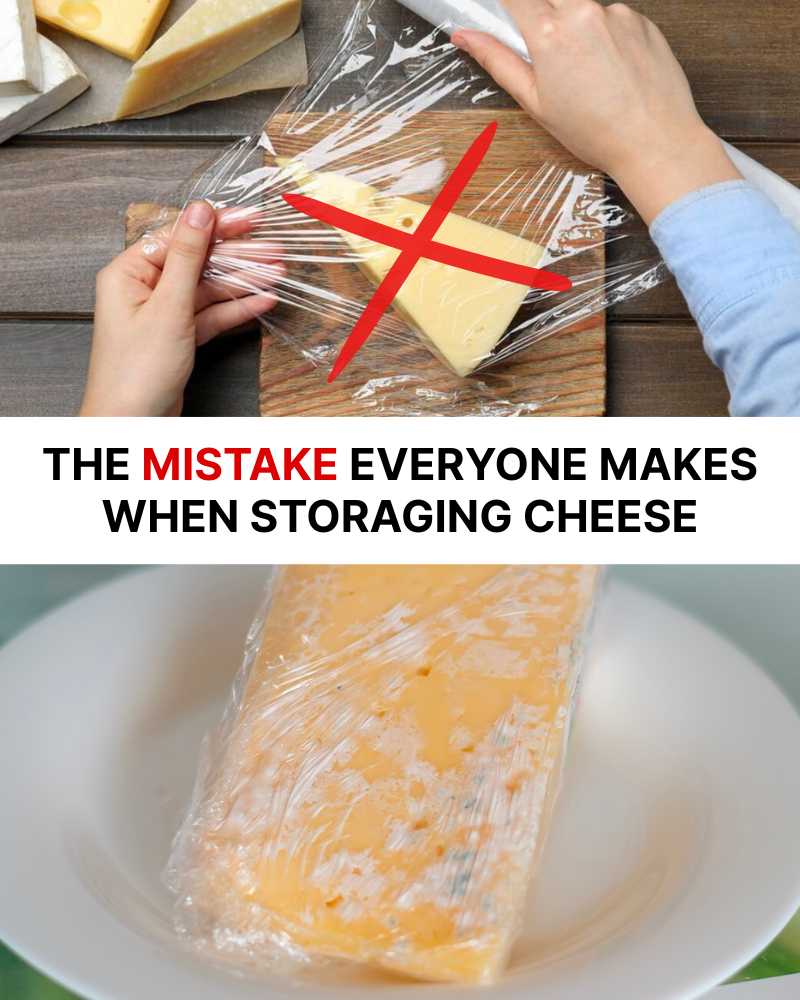Are There Tricks to Make Food Last Longer and Keep Fruits and Vegetables Fresh? Absolutely.
We often make mistakes that cause food to spoil or expire sooner than it should. But with the tips below, storing lettuce, cheese, and apples (among other items) becomes simple and effective.
Proper food storage is essential to ensure that products last longer and can be safely consumed even after some time, without losing their nutritional value or taste.

Food safety matters at every stage.
First, pay attention to how you transport groceries from the store to your home: use insulated bags and avoid waiting too long before putting items into your pantry, fridge, or freezer.
Choose the right containers and materials: stainless steel, aluminum, and glass are best. Avoid plastic wrap, especially if the packaging doesn’t specify that it’s free from toxic substances—which can interact with very fatty or acidic foods.
Storage containers should have airtight lids, and any paper used to wrap fruits, vegetables, or fish should be replaced frequently to prevent moisture from spoiling the food.
Another important tip: pay attention to expiration dates. Place foods that expire sooner toward the front and those with longer shelf lives in the back to avoid confusion.
Storage Tips by Category: You should differentiate between pantry-stable foods, perishable foods, and frozen items. Not all foods should be treated the same—each one requires a specific level of humidity and the right temperature to avoid spoilage.

How to Store Shelf-Stable Foods in the Pantry
Shelf-stable foods include those that don’t require refrigeration or freezing, such as bread, pasta, cereals, water, oil, coffee, canned goods, citrus fruits, and others like pineapple.
- Make sure shelves are cool, dry, and not exposed to direct light.
- The ideal temperature is around 20°C (68°F).
- Once opened, don’t store them in the pantry—transfer them to an airtight container in the fridge and consume them as soon as possible.
- Keep shelves clean and dust-free to prevent contamination, which would make the food unsafe to eat.
Are There Tricks to Make Food Last Longer and Keep Fruits and Vegetables Fresh? Absolutely.
We often make mistakes that cause food to spoil or expire sooner than it should. But with the tips below, storing lettuce, cheese, and apples (among other items) becomes simple and effective.
Proper food storage is essential to ensure that products last longer and can be safely consumed even after some time, without losing their nutritional value or taste.

Food safety matters at every stage.
First, pay attention to how you transport groceries from the store to your home: use insulated bags and avoid waiting too long before putting items into your pantry, fridge, or freezer.
Choose the right containers and materials: stainless steel, aluminum, and glass are best. Avoid plastic wrap, especially if the packaging doesn’t specify that it’s free from toxic substances—which can interact with very fatty or acidic foods.
Storage containers should have airtight lids, and any paper used to wrap fruits, vegetables, or fish should be replaced frequently to prevent moisture from spoiling the food.
Another important tip: pay attention to expiration dates. Place foods that expire sooner toward the front and those with longer shelf lives in the back to avoid confusion.
Storage Tips by Category: You should differentiate between pantry-stable foods, perishable foods, and frozen items. Not all foods should be treated the same—each one requires a specific level of humidity and the right temperature to avoid spoilage.

How to Store Shelf-Stable Foods in the Pantry
Shelf-stable foods include those that don’t require refrigeration or freezing, such as bread, pasta, cereals, water, oil, coffee, canned goods, citrus fruits, and others like pineapple.
- Make sure shelves are cool, dry, and not exposed to direct light.
- The ideal temperature is around 20°C (68°F).
- Once opened, don’t store them in the pantry—transfer them to an airtight container in the fridge and consume them as soon as possible.
- Keep shelves clean and dust-free to prevent contamination, which would make the food unsafe to eat.

